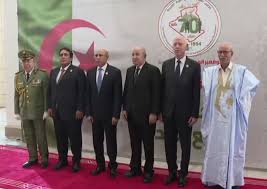As the United Kingdom joins the United States, France, Spain, Germany, and several Arab and African countries in recognizing Morocco’s sovereignty over the Sahara or supporting its autonomy plan, the future of Brahim Ghali’s Polisario Front appears more uncertain than ever.
For decades, the Polisario benefited from political and financial backing from the Eastern Bloc and certain African countries, including the military regimes in Algeria, Libya, and Mauritania, which used the movement as leverage in their rivalry with Morocco.
Now, the separatist group, classified by many as a terrorist organization and backed since its inception by Algeria’s military regime, is facing a diplomatic, strategic, and existential crisis.
But geopolitics has shifted. Since 2020, a wave of implicit or explicit recognitions has emerged: Washington, Madrid, Berlin, and now London all consider Morocco’s autonomy proposal “serious, credible, and realistic.”
The United Kingdom, a permanent member of the UN Security Council, has also announced it will support investments in Morocco’s southern provinces through the UK Export Finance agency, marking a new era of economic integration for the territory.
“This British endorsement sends a strong signal,” said a diplomat based in Brussels. “It reinforces the growing international momentum behind the autonomy plan and underscores the Polisario’s increasing isolation.”
For years, intelligence services have accused the Polisario of ties with terrorist groups operating in the Sahel-Sahara region. Multiple security reports have cited connections between the Polisario and organizations such as Al-Qaeda in the Islamic Maghreb (AQIM), the Islamic State in the Greater Sahara (ISGS), as well as Iranian proxies in the Middle East.
According to voices within parliamentary circles, international bodies are moving toward designating the Polisario as a terrorist organization.
“The risk of radicalization is real,” warns a Saharan security expert. “An isolated movement with no political horizon can fragment, and some of its members may drift into transnational armed networks.”
For now, the Polisario survives thanks to the financial, political, military, and logistical support of Algeria’s army chief, General Saïd Chengriha, who continues to host the group’s militias in Tindouf.

